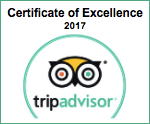Surfing is an exciting and challenging sport that can provide an excellent workout, an opportunity to connect with nature, and a sense of achievement. Whether you’re a beginner or an experienced surfer, private surf lessons can help you improve your skills and take your surfing to the next level. In this post, we’ll explore what to expect from private lessons, including their benefits, what to bring, and how to prepare.
Personalized Instruction
Private surf lessons are one-on-one sessions with a qualified surf instructor. These surf lessons are tailored to your skill level, learning style, and goals, allowing for personalized instruction and attention. Your instructor will be able to provide feedback and guidance specific to your needs, helping you to progress quickly and safely.
Flexible Scheduling
You can choose the day and general time of day that is most convenient for you when taking private surf lessons. Additionally, you can fit your surf lessons in around other obligations like work or school. People with hectic schedules or those who want to avoid crowded beaches will find this flexibility to be especially helpful.
Customized Curriculum
Your unique needs and objectives can be catered to during private surf lessons. If you’re a beginner, for instance, your instructor might concentrate on instructing you in the basics of paddling, standing up, and riding waves. If you’re a proficient intermediate surfer, your instructor might assist you in improving your technique and practicing more difficult open face, vertical ,and aerial maneuvers.
Faster Progression
Because private surf lessons are tailored to your individual needs and goals, you can progress faster than in group surf lessons or on your own. Your instructor can provide instant feedback and make adjustments to your technique, allowing you to correct mistakes and improve more quickly.
Safety First
Safety is a top priority in private surf lessons. Your instructor will teach you how to assess the surf conditions, identify potential hazards, and stay safe in the water. They’ll also provide you with the necessary safety equipment, such as a leash and a wetsuit, and teach you how to use them properly.
Equipment Included
Most private surf lessons include all the necessary equipment, including a surfboard, rashguard, and leash. This eliminates the need for you to purchase or rent your equipment, which can be expensive and time-consuming.
Fun and Enjoyment
Private surf lessons are a fun and enjoyable way to learn how to surf. You’ll have the undivided attention of your instructor, who will encourage and support you throughout the lesson. You’ll also have the satisfaction of catching waves and experiencing the thrill of surfing.
What to Bring
When preparing for a private surf lesson, there are a few things you should bring with you:
- Swimsuit: You’ll be spending most of your lesson in the water, so be sure to wear a comfortable and secure swimsuit.
- Towel: Bring a towel to dry off after your lesson.
- Sunscreen: Protect your skin from the sun by applying sunscreen before your lesson and bringing it with you to reapply as needed.
- Water: Staying hydrated is important, so bring a water bottle to drink from during breaks.
- Snacks: Surfing can be a physically demanding activity, so bring some light snacks, such as fruit or energy bars, to keep your energy levels up.
How to Prepare
Before your private surf lesson, there are a few things you can do to prepare:
- Stay Fit: Surfing requires some physical strength and endurance, so staying fit and active can help you get the most out of your lesson. Incorporate exercises that focus on your core, upper body, and legs, such as push-ups, planks, and squats. Swimming, using the freestyle crawl, is a great way to get in surfing shape. But even if you’re not in the best shape, a private lesson allows you more flexibility to go at a pace that fits your fitness level.
- Watch Surfing Videos: Watching surfing videos can be a helpful way to prepare for your private surf lesson. You can observe the approach and technique of experienced surfers and identify things you would like to work on during your lesson. Watching surfing videos can also help you get a better understanding of how certain types of waves and sections of waves behave, which can improve your overall surfing ability.
- Learn Surfing Etiquette: Surfing has its own set of unwritten rules and etiquette that are important to follow. Before your lesson, take some time to learn surfing etiquette, such as the right of way, how to communicate with other surfers, and how to avoid conflicts amd accidents with other surfers. You can try and get the gist of some of these rules and etiquette, then follow up with your instructor to better understand them.
- Be Open-Minded: Surfing is a challenging sport that requires practice and patience. Be open-minded and willing to learn from your instructor, even if it means making mistakes along the way. Remember that surfing is meant to be fun, and enjoy the experience of learning something new.
Private surf lessons offer a personalized and flexible way to learn how to surf. With customized instruction, safety precautions, and all the necessary equipment included, private surf lessons can help you progress quickly and safely. By preparing properly and approaching your lesson with an open mind, you’ll be able to enjoy the thrill of surfing and improve your skills in no time.


